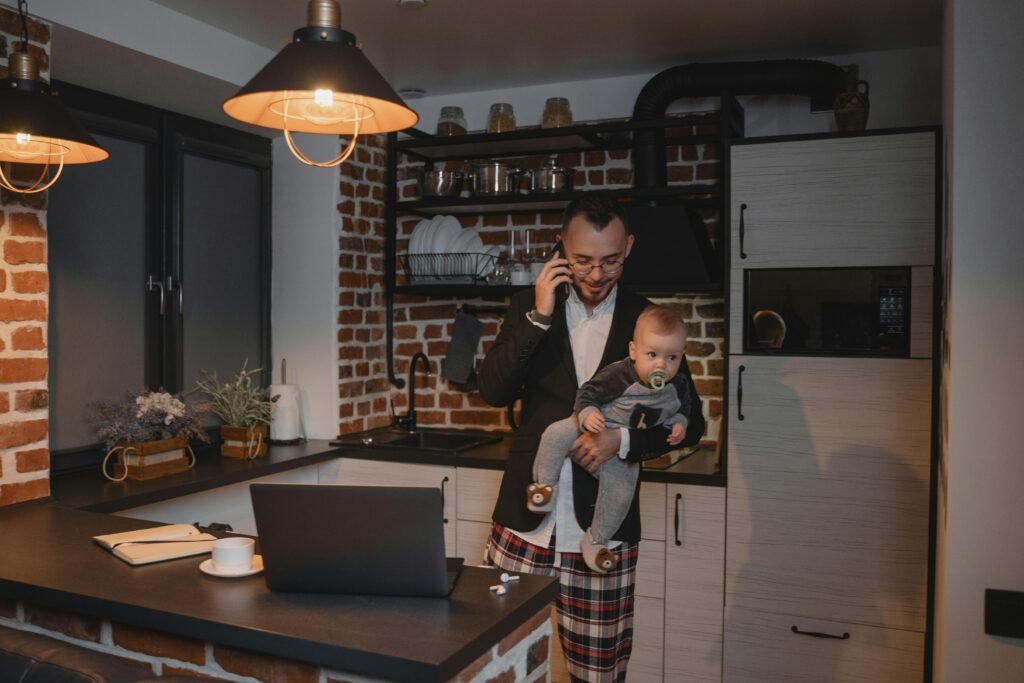
Introduction to the End of Hustle Culture
The concept of hustle culture, where constant productivity and long hours are glorified, has been a dominant narrative in professional environments for years.
However, a growing number of individuals are starting to question the sustainability of this approach.
The intense pressure to always be “on” has left many people feeling overwhelmed, undervalued, and disconnected from their personal lives.
As these feelings have become more common, the conversation around work has begun to shift toward healthier and more intentional ways of living and working.
This change reflects a broader cultural reevaluation of what it means to lead a successful life.
Younger generations, in particular, are rejecting the idea that value and purpose are tied exclusively to their career achievements.
They’re advocating for a more holistic approach to success; one that includes physical health, emotional well being, and meaningful connections with others.
The relentless pursuit of career milestones at the expense of everything else is no longer being celebrated as it once was.
The pandemic further accelerated this mindset shift.
When routines were disrupted, and people were forced to reassess their priorities, the cracks in hustle culture became even more apparent.
Many individuals realized the cost of prioritizing work over personal fulfillment and started seeking new ways to achieve balance.
This period of reflection inspired people to explore alternatives to the grind, paving the way for innovative work structures and approaches that are reshaping professional life today.
As organizations respond to this growing demand for balance, they are exploring new strategies to meet employees’ evolving expectations.
The Drawbacks of Constant Hustle

The relentless drive to stay constantly productive comes with significant costs, many of which are increasingly hard to ignore.
One of the most pressing issues is the toll it takes on mental and physical health.
Chronic stress, a frequent consequence of always being “on,” can weaken the immune system, disrupt sleep patterns, and heighten the risk of anxiety and depression.
These outcomes reflect how unsustainable extended work hours can be over time.
Burnout is another significant consequence of the hustle mindset.
When long workdays become the norm, energy reserves are quickly depleted, leaving people exhausted, unmotivated, and less effective in their roles.
This state of emotional and physical exhaustion not only diminishes job satisfaction but also impacts creativity and problem solving abilities.
Over time, it becomes harder to recover from these effects, creating a cycle of diminished productivity and heightened frustration.
Beyond personal health, this culture strains relationships and limits opportunities to engage in fulfilling activities outside of work.
For those caught up in the constant grind, maintaining meaningful connections with family and friends can feel impossible.
Missed family dinners, skipped vacations, and canceled social plans often become the default, fostering feelings of isolation and dissatisfaction.
The societal glorification of overwork also leads to unrealistic expectations.
When hustle culture is normalized, individuals may feel pressured to match the pace of their peers or meet unattainable standards, even if doing so compromises their well being.
This sense of competition can exacerbate stress, fostering a toxic environment where work defines worth and leaves little room for personal identity.
In addition to the human costs, this approach has long term implications for organizations.
High turnover rates, absenteeism, and decreased employee engagement are common outcomes when workers feel overburdened and undervalued.
Businesses often face mounting challenges in retaining talent and maintaining team morale in environments dominated by unrelenting demands.
Rise of the Work-Life Balance Movement

The growing recognition of the downsides of hustle culture has led to a significant shift in how people approach their work and personal lives.
Flexibility in the workplace has become a key demand, with more professionals seeking options that allow them to manage both aspects effectively.
Such efforts demonstrate how a well-balanced schedule can yield benefits for both individuals and businesses.
There’s a rising awareness around the importance of personal time and mental health.
Employees today are vocal about the need to prioritize wellness and engage in activities that enrich their lives beyond the workplace.
Employers are beginning to take note, introducing policies that encourage breaks, vacations, and mental health days.
This change signals a shift away from outdated notions of productivity, where long hours were seen as the ultimate indicator of commitment.
In addition to flexible schedules, there’s growing interest in workplace policies that emphasize autonomy.
Professionals are calling for more control over how and when they work, believing that freedom in decision making leads to better outcomes.
This trend aligns with the idea that success is not about how many hours are worked but about the quality and impact of that work.
Another factor fueling the balance movement is the push for environments that foster collaboration and innovation without adding unnecessary pressure.
Organizations are beginning to design workspaces and cultures that prioritize creativity, open communication, and teamwork over rigid hierarchies and exhaustive deadlines.
This fresh approach is helping to build healthier dynamics that empower employees to perform at their best while still having the time and energy to enjoy their personal lives.
Leaders in various industries are also rethinking traditional methods of measuring performance.
Metrics that focus exclusively on output are being replaced by evaluations that consider overall employee well being and satisfaction.
This evolution is reshaping the employer-employee relationship, with businesses investing in programs that support not just professional growth but also personal development.
Ultimately, the rise of the work-life balance movement reflects a growing demand for workplaces that align with modern values.
The idea is no longer about working harder but working smarter; creating space for both productivity and fulfillment.
The Role of Technology in Shifting Trends

Technology continues to drive meaningful changes in how work is structured, offering tools that support a healthier and more efficient approach to professional life.
One of the most notable shifts has been the widespread adoption of remote work, made possible by advancements in digital platforms.
These tools have redefined traditional office settings, empowering individuals to design workdays that suit their personal needs while still meeting professional responsibilities.
The flexibility provided by technology allows employees to reclaim time previously spent on long commutes, redistributing it toward personal interests or family commitments.
Video conferencing, project management software, and cloud-based systems have made it easier than ever to stay connected and organized, even when teams are spread across different time zones.
As a result, workers can maintain productivity without sacrificing personal well being.
Beyond enabling remote work, technology has improved collaboration in significant ways.
Real time communication platforms make sharing ideas seamless, breaking down the barriers that once existed in rigid office environments.
Teams now have the ability to brainstorm, strategize, and execute projects with ease, regardless of physical location.
This level of connectivity fosters a sense of inclusivity, as every team member has an equal opportunity to contribute, no matter where they are.
Automation is another factor shaping the modern workplace.
By streamlining repetitive tasks, technology allows professionals to focus on more creative and strategic responsibilities.
Automating routine processes not only saves time but also reduces the mental strain of managing small, repetitive details.
This shift creates space for employees to engage in higher value work, which often leads to greater job satisfaction and innovation.
Additionally, the rise of digital learning tools has opened up new avenues for personal and professional growth.
Online courses, webinars, and virtual training programs give employees the opportunity to develop skills at their own pace.
This access to continuous learning ensures that workers remain competitive in their fields while fostering a culture of growth and development within organizations.
Employers who embrace these technologies are better positioned to cultivate highly skilled and motivated teams.
With the proliferation of wearable devices and wellness apps, technology also supports the growing emphasis on health in the workplace.
Features that track physical activity, promote mindfulness, or provide mental health resources empower individuals to take a proactive approach to their well being.
Employers can leverage these tools to create a supportive environment, encouraging habits that benefit both employees and the company as a whole.
Moreover, digital platforms are making performance tracking more dynamic and individualized.
Advanced analytics tools provide actionable insights into productivity and engagement, helping employers identify areas for improvement without resorting to outdated metrics that prioritize hours worked over meaningful contributions.
These innovations help ensure that performance reviews and feedback systems are more constructive, fostering growth rather than unnecessary pressure.
Through smart implementation of these advancements, technology has enabled organizations to reimagine traditional work models.
By focusing on flexibility, efficiency, and well being, companies are aligning with modern values and helping employees achieve a more sustainable approach to their careers.
In this way, technology has become a critical tool in shaping workplaces that cater to both personal fulfillment and professional success.
Redefining Success in the Modern Era

The idea of success has undergone a profound shift, reflecting changes in how individuals view their careers, priorities, and overall sense of purpose.
For many, success is no longer defined by the relentless pursuit of promotions or salary increases, but rather by work that feels meaningful and aligned with personal values.
Today’s professionals are seeking opportunities that allow them to make a genuine impact, whether it’s contributing to their communities, championing social causes, or fostering innovation in their fields.
This shift is also prompting people to reexamine the role of work in their lives.
The long held belief that career achievements must come at the expense of personal well being is giving way to a broader understanding of fulfillment.
Individuals are prioritizing opportunities that integrate seamlessly with their lifestyles, offering flexibility and space for personal growth.
Jobs that support mental and physical health, provide opportunities for continuous learning, and create a sense of balance are increasingly valued over traditional roles that demand endless sacrifice.
In addition, there’s a growing focus on the importance of authenticity in professional environments.
Workers are drawn to organizations that reflect their values, where transparency and ethical practices are more than just talking points.
Companies that prioritize diversity, inclusivity, and sustainability are not only attracting top talent but also redefining what it means to be a successful business in today’s world.
Professionals now expect their workplaces to align with their own beliefs, valuing corporate responsibility as much as they do compensation or benefits.
For many, success now also involves finding a career that fosters connection; both with others and within themselves.
This means building strong relationships with colleagues, clients, and communities, as well as taking time to understand personal aspirations and how they relate to broader goals.
A meaningful career is increasingly seen as one that nurtures collaboration, respect, and shared achievement, rather than isolating individuals in the pursuit of purely personal accolades.
Moreover, a growing number of professionals are adopting a longer term perspective on success.
Instead of chasing immediate rewards or short lived accomplishments, they’re emphasizing sustainable growth; both personally and professionally.
This includes pursuing roles that offer a steady progression of skills, experiences, and responsibilities without leading to burnout.
People are recognizing the value of careers that not only support their current goals but also allow them to build a solid foundation for the future.
Creative autonomy is another key aspect of how success is being redefined.
Many professionals now prioritize opportunities where they have the freedom to experiment, innovate, and express their individuality.
This shift reflects a rejection of rigid, one size fits all workplace models in favor of roles that allow employees to bring their full selves to the table.
With this emphasis on creativity and self-expression, success is becoming more personalized, shaped by what truly matters to each individual.
At its core, the evolving definition of success reflects a broader societal transition toward intentionality.
It’s no longer enough to simply clock in and out of a job; people want to feel that their efforts are part of something larger.
Whether through meaningful work, ethical business practices, or careers that support holistic well being, today’s professionals are reshaping the narrative around what it means to thrive in the modern era.
Conclusion: Embracing the New Work Culture

The workplace is undergoing a significant transformation, driven by a collective desire for a more sustainable and fulfilling approach to work.
This shift isn’t just about abandoning hustle culture; it’s about reimagining professional life in a way that prioritizes well-being, adaptability, and purpose.
Employees and employers alike are recognizing that success doesn’t need to come at the cost of mental health, personal relationships, or individual growth.
One of the most encouraging aspects of this evolution is the focus on building careers that align with broader values and goals.
People are choosing to work in environments that respect their need for flexibility, foster creativity, and encourage collaboration.
This alignment not only helps individuals feel more engaged but also benefits organizations by cultivating teams that are motivated, innovative, and resilient.
At the heart of this new work culture is the idea of intentionality.
Professionals are making deliberate choices about how they work, where they work, and why they work.
This level of clarity is empowering individuals to take charge of their careers in ways that feel meaningful and sustainable.
It’s a shift from simply getting through the day to thoughtfully designing a career that complements one’s lifestyle and aspirations.
Leaders have a critical role to play in sustaining this momentum.
Organizations that embrace these new values; by promoting flexibility, supporting mental health, and fostering trust, are setting themselves apart in an increasingly competitive landscape.
Businesses that prioritize people over output, focus on quality rather than quantity, and invest in their workforce are proving that profitability and employee well-being can go hand in hand.
The transition away from outdated models of overwork reflects a deeper understanding of how interconnected work and personal life truly are.
As the lines between the two continue to blur, professionals are advocating for healthier boundaries and finding ways to thrive both in and outside the office.
This holistic approach is reshaping not only how success is defined but also how it’s achieved.
Looking ahead, this redefinition of work culture represents an opportunity for long lasting change.
By embracing practices that promote balance and innovation, both individuals and organizations are better positioned to meet the challenges of a rapidly evolving world.
It’s no longer about working harder; it’s about working smarter, with a clear focus on what truly matters.
This isn’t just a trend; it’s a movement that signals a brighter, more sustainable future for work.
As more people adopt this mindset, the potential for creating environments where both careers and personal lives can flourish becomes increasingly attainable.
The time has come to embrace a professional culture that values not just productivity but also purpose, progress, and fulfillment.

Can you be more specific about the content of your article? After reading it, I still have some doubts. Hope you can help me.